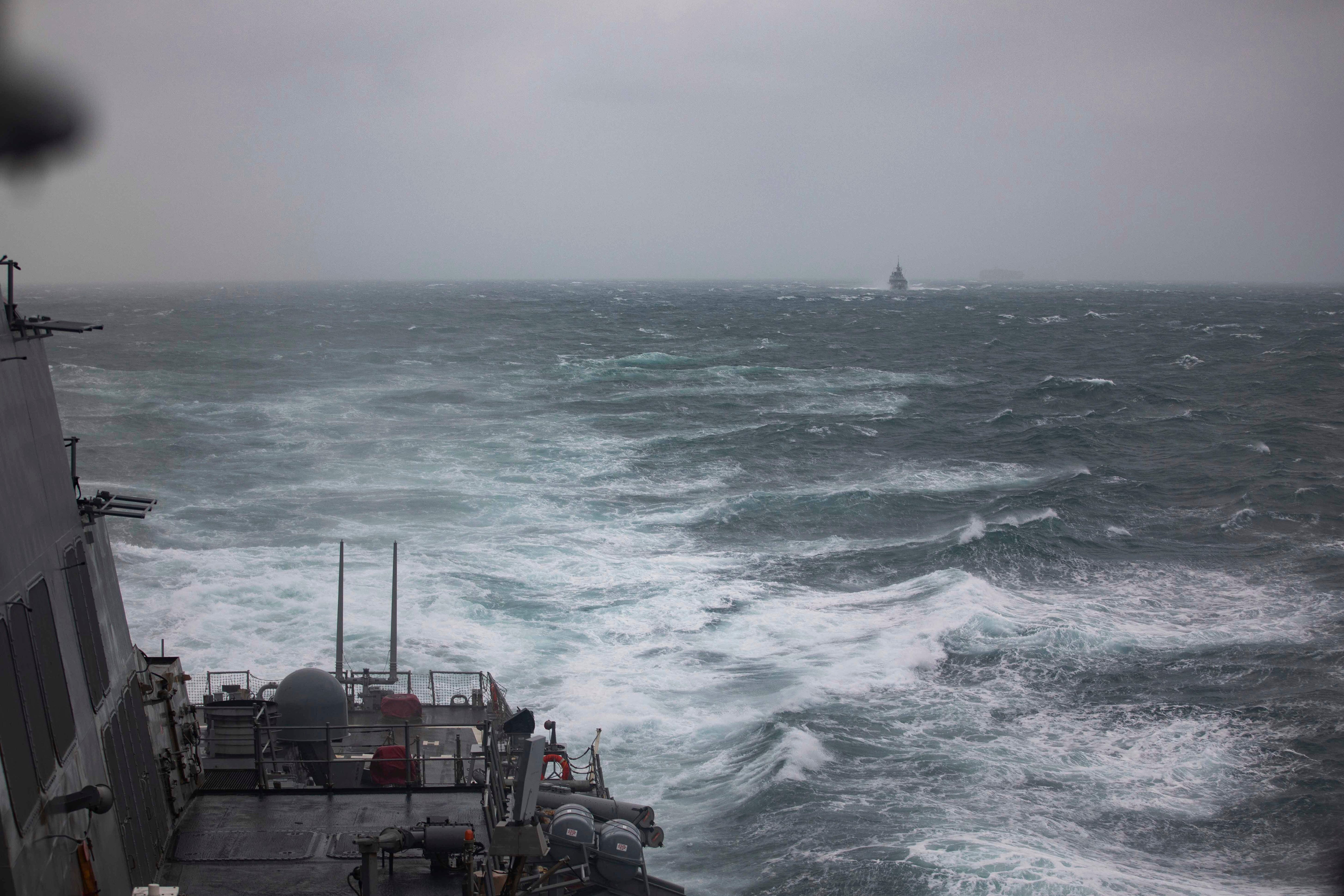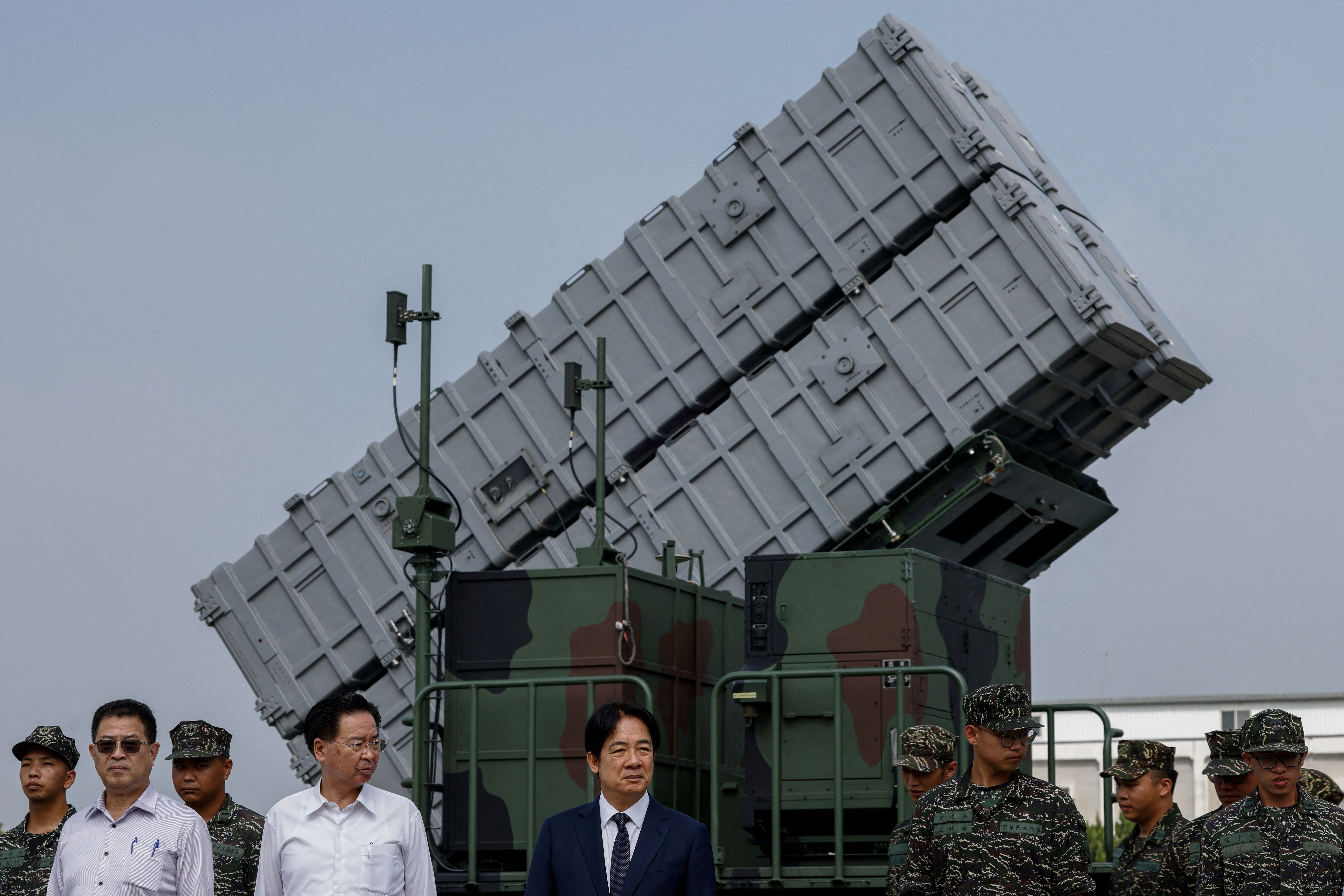China promises ‘counter-measures’ after $2bn US arms sale to Taiwan
Arms package is 17th approved by Joe Biden administration
China has strongly condemned the latest $2bn (£1.5bn) arms sale approved by the US for Taiwan, declaring it a threat to regional peace and promising decisive counter-measures in response.
The arms sale, which includes advanced missile systems intended to bolster Taiwan’s air defences, has prompted Beijing to warn of further military action as it intensifies its own presence around the island.
“China will take resolute counter-measures and all necessary steps to defend its sovereignty, security, and territorial integrity,” the country’s foreign ministry said in a statement late on Saturday.
Beijing also lodged “solemn representations” with Washington, urging the US to stop what it described as “dangerous moves” that risk further destabilising the Taiwan Strait.
The Pentagon on Friday confirmed the arms sale, which includes three National Advanced Surface-to-Air Missile Systems (Nasams), valued at about $1.16bn, and radar systems worth around $828m.
The Nasams have been tested in combat in Ukraine. They are the first of their kind to be given to Taiwan, marking a significant enhancement to its defensive arsenal as it faces threats from China.

Taiwan’s defence ministry expressed confidence that the Nasams would enhance its ability to protect itself against Chinese military manoeuvres.
Taiwan’s presidential office expressed gratitude to the US for the sale, arguing that strengthening the island’s defences was essential for the region’s stability.
“In the face of China’s threats, Taiwan is duty-bound to protect its homeland and will continue to demonstrate its determination to defend itself,” the island’s foreign ministry said.
President Lai Ching-te has prioritised strengthening the military since taking office earlier this year as Beijing has expanded military operations around Taiwan, which it claims as an integral part of its territory.
The arms package, the 17th such approved by president Joe Biden’s administration, follows a series of military drills by China around Taiwan.
The exercises, conducted last week, simulated the “sealing off of key ports” on the island and mobilised a record number of forces.
Taiwan reported as many as 153 Chinese aircraft, along with 14 navy vessels and 12 government ships, taking part in the drills, which Chinese officials characterised as preparations to “secure the region”.

Taiwan’s defence ministry reported on Sunday that 19 Chinese military aircraft, including Su-30 fighter jets, and several warships conducted a “combat patrol” encircling the island.
These operations were part of what Taiwan has described as regular, near-daily patrols that have intensified since Beijing began to stage large-scale drills near the island in recent months. Taiwanese forces closely monitored the Chinese activity and stood on alert in response.
The US is bound by law under the Taiwan Relations Act to assist the island in maintaining a robust self-defence capability. This commitment underscores the broader strategic competition between Washington and Beijing, with Taiwan positioned at the centre of their rivalry.
China’s recent show of force around Taiwan underscores its efforts to curtail what it sees as growing support for Taiwanese independence.
The Chinese defence ministry did not provide details on the nature of the counter-measures it intends to take but reiterated that Beijing “strongly condemns and firmly opposes” the arms sale, which it claims undermines China’s security and damages US-China relations.
“We will take all necessary measures to firmly defend national sovereignty, security, and territorial integrity,” the ministry said.
Join our commenting forum
Join thought-provoking conversations, follow other Independent readers and see their replies
Comments
Bookmark popover
Removed from bookmarks